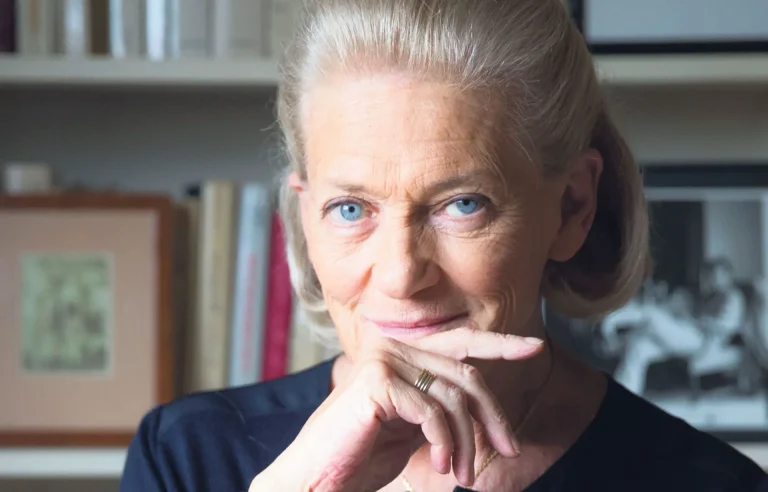Fortune Idriss J. Aberkane: The Impact of His Innovative Ideas in March 2025
Fortune Idriss J. Aberkane
Idriss Aberkane is a speaker and French essayist born on May 23, 1986. He is known for his media appearances and lectures on personal development. Although controversial in certain circles, he has built up a notable presence in the French intellectual landscape.
Idriss Aberkane's fortune is estimated at around 2 million euros. Despite this estimate, some of these companies encountered financial difficulties. According to available information, these companies have been liquidated for lack of business.

In a popular YouTube video entitled " Idriss Aberkane gives his salary" he openly addresses the question of his income. This transparency contrasts with the usual financial discretion of French intellectuals, contributing to his atypical image in the media landscape.
Biography and academic background
Idriss J. Aberkane, born May 23, 1986, is a media-savvy figure on the French intellectual landscape. His career is marked by early academic ambition and a significant media presence, although some of his claims concerning his curriculum vitae have been called into question.
Education and influences
Aberkane claims to hold three doctorates, including one from École polytechnique at the age of 29 years old. His declared fields of study cover cognitive neuroscience and the economics of knowledge applied to management.
He mentions having been Visiting Scholar à Stanford University from the age of 21 years old. Among his intellectual influences are references to various thinkers, including figures such as Nietzsche and Marx in some of its analyses.
However, several sources have raised questions about the veracity of certain elements of his academic background, sometimes referring to his CV as " overinflated" .
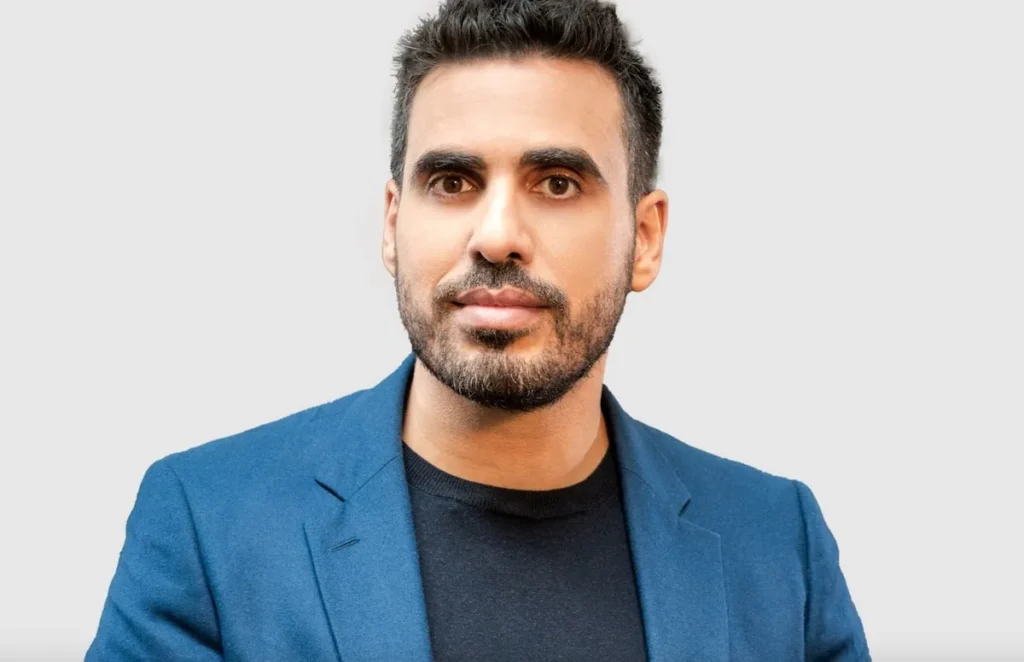
Academic and professional careers
Aberkane has made his name mainly as a lecturer and essayist. He claims to have given more than 440 conferences according to his personal website, although other sources mention the figure of 160.
He presents himself as a specialist in neuroscience and biology, among other fields. His career is characterized by a strong media presence rather than a traditional academic path.
His career then branched out into consultancy and popular science. Recently, he has also been involved in controversies and polemical positions, which have altered the public perception of his expertise.
Intellectual contributions
Idriss Aberkane has developed several theories on human intelligence and our ability to use our brains. His work revolves around the idea that we are not fully exploiting our cognitive potential.
Free your brain
The book " Free your brain! "published in 2016 is Aberkane's major work. This book explores how to optimize our cognitive capacity using neuroscience.
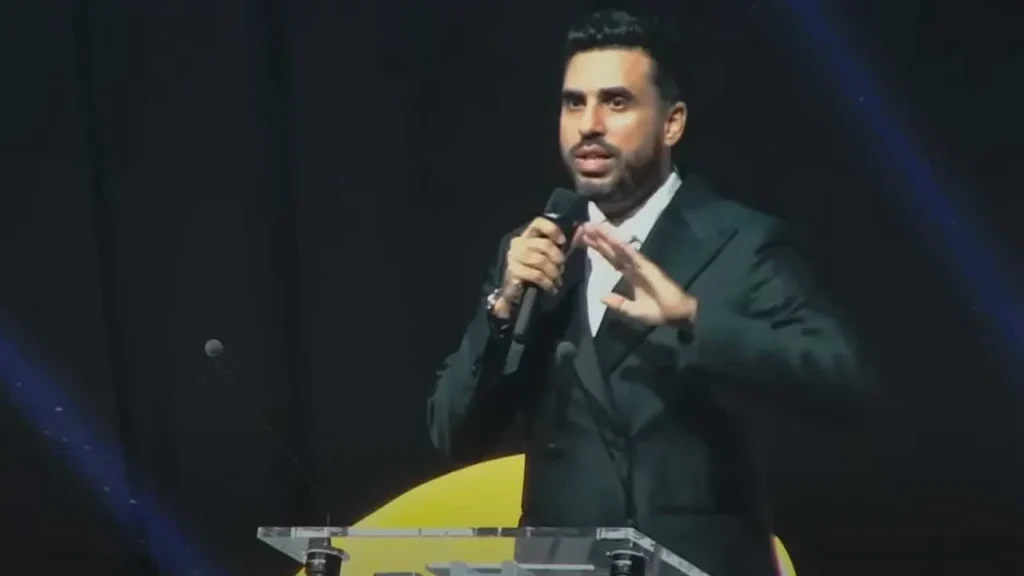
According to available information, the book was a major commercial success, initially bringing in around 50,000 francs Swiss francs per month. However, this income would have fallen to 7,000 Swiss francs at 2024.
Aberkane develops the concept of neuroergonomics" He suggests methods for improving our learning and creativity. He proposes an approach that aims to reconcile our natural brain functioning with our learning methods.
Theories on intelligence and human potential
Aberkane puts forward the idea that intelligence is not solely determined by genetics, but can be developed through specific techniques. He defends a vision in which human potential is largely under-exploited.
In his lectures, he discusses the concept of noopolitics "The power of knowledge - suggesting that in a world of absolute knowledge, conflict could disappear. This theory explores how knowledge could transform traditional power relations.
His academic work includes a thesis for which he requested a five-year embargo for intellectual property reasons, underlining the importance he attaches to his contributions in this field.

Philosophy and ideology
Idriss J. Aberkane develops a philosophy that places knowledge at the center of power and social progress. His ideas reflect a vision in which collective intelligence can overcome contemporary challenges.
Thought systems and individual choices
Aberkane argues that individual choices are influenced by pre-established systems of thought that we unconsciously absorb. His rhetoric revolves around "noopolitics", a concept he defines as the power of knowledge.
He argues that universal knowledge could put an end to global conflicts. In his view, our ability to make informed choices depends on our access to information and our ability to process it effectively.
His philosophy emphasizes collective morality and individual responsibility. It encourages everyone to develop a critical approach to the information they receive.
Social criticism and capitalism
Aberkane takes a critical stance on certain aspects of modern capitalism, particularly institutionalized greed. He questions the mechanisms that enable the rich to maintain their wealth and influence.

In his lectures, he analyzes how economic elites preserve their privileged status. His social critique examines structural inequalities and the systems that perpetuate them.
He proposes an alternative vision where shared knowledge replaces capital accumulation as the foundation of society. For him, the economy should serve the common good rather than encourage excessive personal enrichment.
Aberkane advocates a more equitable economic system, based on the exchange of knowledge rather than the exploitation of resources.
Perspectives on education and society
Idriss J. Aberkane develops a singular vision of the future of our societies through the prism of the knowledge economy. He proposes reflections on the necessary transformation of education systems and the evolution of professional paradigms.
Education and the future of societies
Aberkane asserts that " education is always a political issue "He criticizes the current education system for its inability to adapt to contemporary challenges. He argues that certain essential skills are deliberately not taught in traditional schools.

In the face of artificial intelligence, he predicts a radical transformation in the field of education. In his view, the knowledge-based economy is the only paradigm that will enable a " healthy, infinite growth" .
Aberkane advocates an educational model that values creativity and innovation over memorization. He believes that adapting teaching methods is imperative to prepare new generations for the challenges of the future.
Professional and social life in the knowledge age
In his vision, future working life will be dominated by those who master the creation and management of knowledge. Aberkane analyzes how wealthy individuals maintain their wealth through their understanding of the mechanisms of the knowledge economy.
He anticipates a society where cognitive and creative skills will surpass material capital in value. Social interactions will also evolve, moving from exchanges based on tangible goods to exchanges of ideas and innovations.
To succeed in this new paradigm, Aberkane recommends:
- Developing intellectual autonomy
- Cultivating creativity and adaptability
- Understanding the mechanisms of intangible value creation
In his view, this transformation represents a historic opportunity to redefine our relationship with work and social relations.

Political and social commitment
Idriss J. Aberkane is involved in several political and social spheres, defending certain individual freedoms while seeking to influence public policy. His approach combines intellectual activism with positions on controversial contemporary issues.
Activism and individual freedoms
Aberkane positions himself as a defender of individual freedoms in his lectures and media appearances. He frequently criticizes what he perceives as infringements of citizens' fundamental rights.
His discourse often emphasizes the importance of freedom of expression and the right of each individual to develop his or her full potential without undue state hindrance.
He regularly tackles issues such as immigration, sometimes adopting controversial positions that generate debate in the French public arena.
In his writings, he develops the notion of "noopolitics" - the power of knowledge - which he presents as an alternative to traditional political systems.
Influencing public policy
Aberkane tries to influence public policy mainly through his books, conferences and media interventions. He criticizes political decisions that he deems harmful to the French economy and citizens' savings.
His economic and social analyses aim to propose alternatives to current policies. In particular, he expresses his views on:
- Public finance management
- Education policies
- National innovation strategies
It maintains a complex relationship with the political establishment, alternating between direct criticism of leaders and proposals for structural reform. Its declared aim is to encourage more active citizen participation in democratic processes and voting.
Legal and ethical issues
The legal and ethical issues surrounding Idriss J. Aberkane raise several important controversies in the intellectual world. These issues touch on both the foundations of modern society and the rights of content creators.
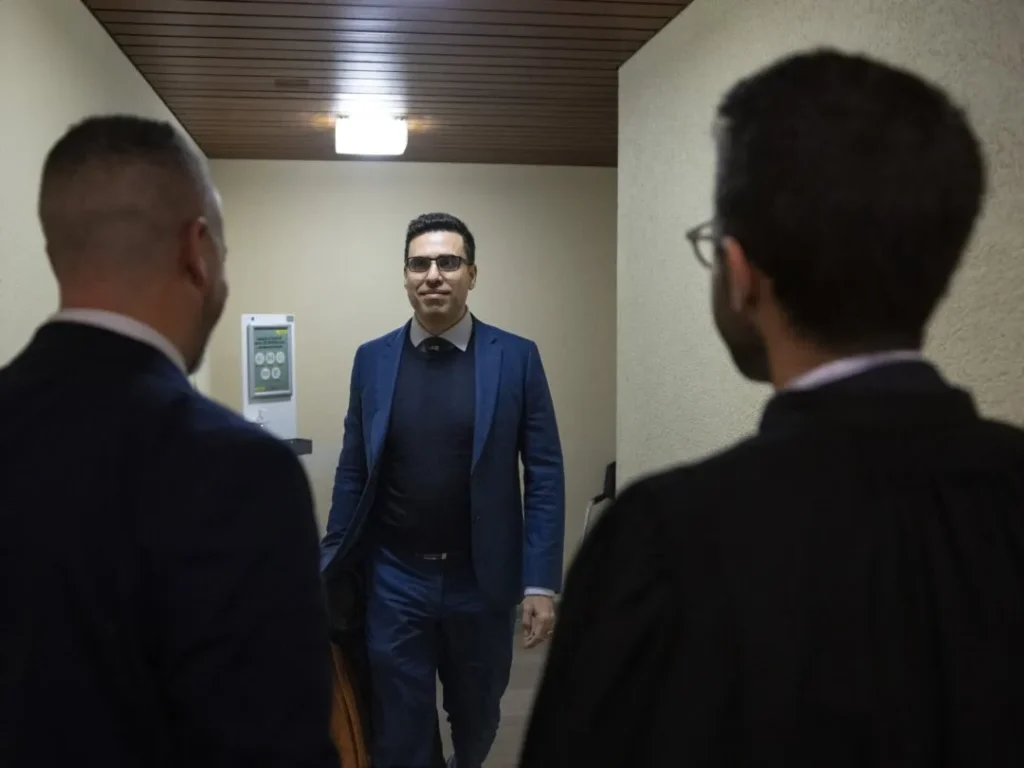
Law and morality in modern society
Allegations concerning Aberkane's practices have raised significant legal questions. According to some reports, its Swiss companies are under judicial investigation, as the search results suggest.
Criminal law could be invoked if financial irregularities were confirmed by the authorities. These investigations are part of a broader framework of questioning professional ethics.
Aberkane's critics also point to a possible breach of public trust. According to some sources, his CV has been "over-inflated", creating a debate about the intellectual honesty with which he presents his qualifications.
Intellectual property and copyright
The question of plagiarism is a major issue in the Aberkane case. According to research results, one of his doctorates is "suspected of plagiarism". This raises questions about respect for copyright.
Intellectual property rights form the basis of the knowledge economy, a subject paradoxically central to Aberkane's lectures. This situation highlights the tension between promoting knowledge and respecting its creators.
The media have played an important role in bringing these issues to light, as suggested by the reference to media trust in one of the articles quoted. This case illustrates the challenges of protecting intellectual property in the digital age.
Impact on individual dreams and aspirations
Idriss J. Aberkane promotes the idea that knowledge is a real power that can transform individual aspirations. His message resonates particularly with people seeking to redefine their professional and personal paths.
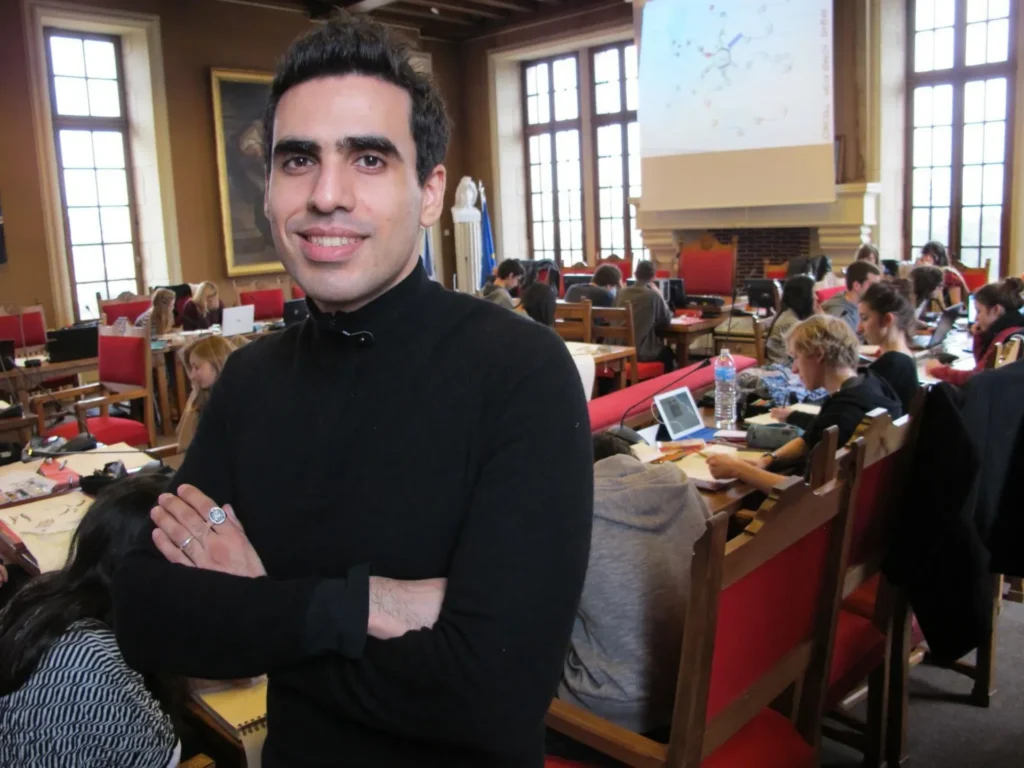
In his speeches, Aberkane encourages individuals to unleash their potential outside conventional frameworks. He asserts that "anyone can become rich, but few people make the right decision to be rich". This philosophy distinguishes material wealth from personal fulfillment.
His stance on traditional education is particularly noteworthy. He tackles the sensitive subject of "failing your studies to succeed your life", suggesting that unconventional paths can lead to the realization of personal dreams.
Aberkane values three types of individual aspirations:
- Intellectual autonomy
- Personal reinvention
- Innovation off the beaten track
His vision of the knowledge economy opens up new perspectives, such as biomimetics and the circular economy. It inspires those seeking to align their professional aspirations with their personal values.
Despite the controversies surrounding his career, his influence on many people's aspirations remains significant. His core message encourages everyone to look beyond perceived limitations to pursue their authentic dreams.
Debate and controversy surrounding Idriss Aberkane
Idriss Aberkane, a French lecturer and essayist born on May 23, 1986, has found himself at the center of several controversies that have marked his public career. The publicity he has received and the positions he has taken have provoked a wide range of reactions in academic and media circles.
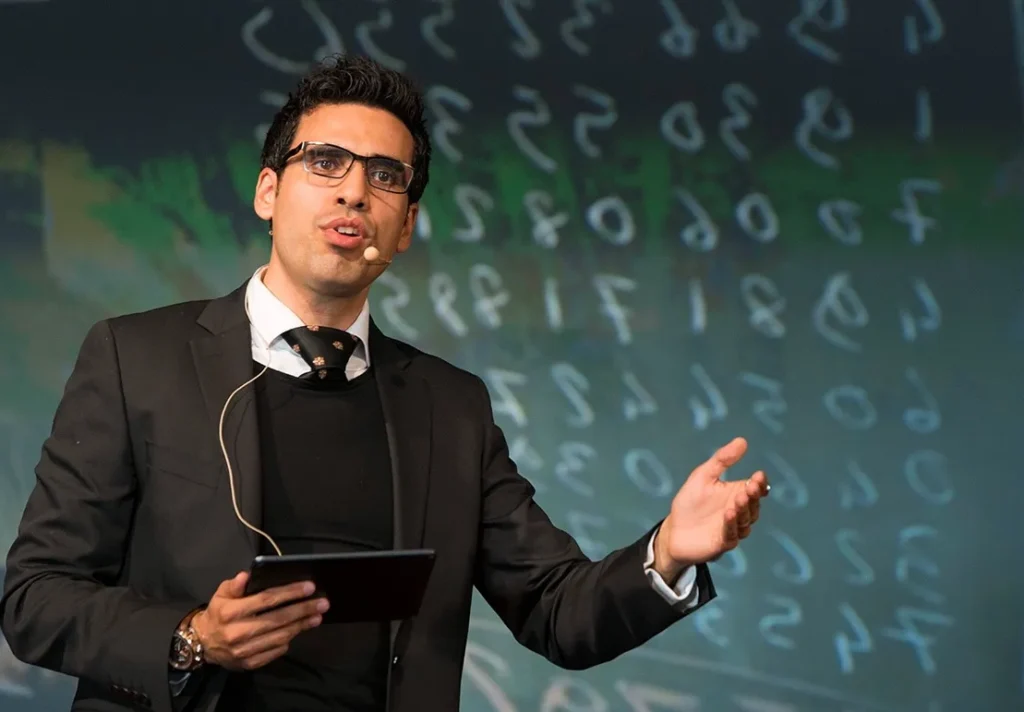
Accusations of plagiarism and abuse
Criticism has been levelled at Idriss Aberkane's academic rigour. Some have accused him of plagiarism in his work, calling into question the originality of his research and publications. These accusations have been particularly strong in the context of his media appearances, where he presents himself as a "hyperdoctor".
The way in which he promotes his diplomas and expertise in neuroscience has also been challenged. Journalists and researchers have questioned the validity of some of his scientific claims, pointing out inconsistencies or oversimplifications.
In his interactions with the media, Aberkane has sometimes adopted a posture that has been perceived as arrogant by some observers, particularly in the context of scientific debates.
Criticism and defense
Aberkane has positioned himself as a critic of traditional media. In interventions such as the one mentioned on YouTube " Billionaires or journalists" he questions the trust placed in the media and proposes an alternative vision.
He became a polarizing figure, particularly during the health crisis when he showed his support for Didier Raoult. This stance earned him harsh criticism, with some accusing him of contributing to disinformation.
His supporters value his ability to popularize complex concepts and offer a critical vision of established institutions. They appreciate his rhetoric and his disruptive approach to intellectual debate.
The publication " Franc-Tireur "described him as " hypertrophied ego" illustrating the sometimes personal nature of the criticism levelled at him.
Influence on culture and media
Idriss Aberkane has developed a significant presence in the French media. His ideas on the knowledge economy and his controversial positions have helped shape certain public debates.
Media and the spread of ideas
Aberkane has established himself as a media-savvy speaker and essayist. His YouTube appearances have attracted the attention of a wide audience.
In his lectures, he tackles a wide range of subjects, from the knowledge economy to criticism of traditional media. He often adopts a critical stance towards journalism.
In one of his lectures, entitled "The Press in the 21st Century", he questions the integrity of journalistic work. He suggests that some media are involved in "manipulating opinion".
His media presence is polarizing. Some consider him a talented popularizer, while others criticize his sometimes controversial positions and his references to thinkers such as Nietzsche and Marx.
Literature and published works
Aberkane's written work has also contributed to his cultural influence. His essays on the knowledge economy propose an economic paradigm that he presents as "healthy and infinite", in contrast to traditional models.
His publications include articles and PDFs widely shared on social networks. He develops his theories on neurosagesse and the knowledge economy, concepts he helped popularize in France.
His literary output is characterized by an accessible style that seeks to popularize complex concepts. This approach has enabled him to reach a diverse audience beyond traditional academic circles.
His frequent references to philosophers and theorists such as Nietzsche help lend intellectual depth to his arguments, although some academics question the rigor of his interpretations.
Future prospects and a vision of superiority
Idriss J. Aberkane projects a transformative vision of higher education and human intelligence. He proposes a radical change in our approach to educational systems in the face of technological advances.
Foresight on intelligence
Aberkane sees intelligence as a rapidly evolving field. He emphasizes the importance of "noopolitics", a concept he develops around the power of knowledge. According to him, in a world of absolute knowledge, conflicts would diminish considerably.
His vision revolves around three important dimensions:
- Natural intelligenceto cultivate and preserve
- Artificial intelligencefor use as a complementary tool
- Collective intelligenceto be developed using blockchain technologies
Aberkane draws links between neuroscience and untapped human potential. He suggests that our current understanding of intelligence is limited, and that genetics could play a key role in future cognitive developments.
The future of education
Aberkane advocates a complete overhaul of traditional education systems. He envisions an education centered on the development of innate abilities rather than the standardization of knowledge.
In the face of artificial intelligence, he anticipates a major transformation in learning methods. Technologies will become allies in a personalized, adaptive educational process.
He sees the knowledge economy as the paradigm for "healthy and infinite" growth. This approach values cognitive skills as the main resources of the future.
His model recommends:
- Experiential learning
- Enhancing creativity
- Integrating blockchain technologies into higher qualifications
Reflections on personal data and depersonalization
Idriss J. Aberkane considers personal data to be a resource more precious than our blood. In his lectures, he highlights their extraordinary potential to save lives and advance scientific research.
According to Aberkane, our personal information generates considerable economic capital. However, he is concerned about the phenomenon of depersonalization that accompanies this monetization of data.
Depersonalization represents a major risk to our social life. When individuals become mere data points, their authentic interactions diminish in favor of automated, commercial exchanges.
Aberkane proposes a balanced approach. He doesn't reject technological advances, but argues for greater awareness of the value of our personal information.
In his quest for "lost privacy", he encourages citizens to regain control of their data. This, he believes, is essential to preserving our humanity in the digital age.
Aberkane's reflections invite us to rethink our relationship with digital platforms. He suggests that knowledge of data collection mechanisms is a first step towards digital emancipation.
He draws a parallel between financial wealth and personal wealth. The preservation of our digital identity is, in his view, an often overlooked but fundamental form of wealth.
Summary
Idriss J. Aberkane is a French lecturer and essayist, known for his theories on human intelligence and the knowledge economy. His controversial academic background, including three claimed doctorates, is the subject of much debate. His book "Libérez votre cerveau!" was a great success, although his income has declined in recent years. His fortune is estimated at 2 million euros, but some of his companies have run into financial difficulties. Aberkane is known for his critical approach to the media and capitalism, advocating a society based on knowledge and innovation.
Frequently asked questions about Idriss J. Aberkane
What are Idriss J. Aberkane's areas of expertise?
Idriss J. Aberkane specializes in the knowledge economy. His areas of expertise also include neuroscience, innovation and biomimetics.
He regularly lectures on these subjects. He is particularly interested in artificial intelligence, as shown by his recent publications.
Is Idriss J. Aberkane married?
Yes, Idriss J. Aberkane is married. However, he maintains a certain discretion regarding his marital and family life, preferring to focus on his professional activities.
How many children does Idriss J. Aberkane have?
Information about Idriss J. Aberkane's children is not widely publicized. He keeps his family life relatively private.
What is Idriss J. Aberkane's academic background?
Idriss J. Aberkane has a diverse academic background. He has studied at a number of prestigious institutions and obtained several degrees in different fields.
In March 2015, research findings identified him as a professor at a conference on the knowledge economy.
What is Idriss J. Aberkane's vision of the knowledge economy?
Idriss J. Aberkane sees the knowledge economy as an essential lever for emancipation. He promotes the idea that knowledge represents wealth which, unlike material resources, increases when shared.
In his lectures, he explains how intellectual mastery can be a more important "roof" than the material one. He also criticizes the fact that some essential knowledge about wealth creation is not taught in the traditional school system.


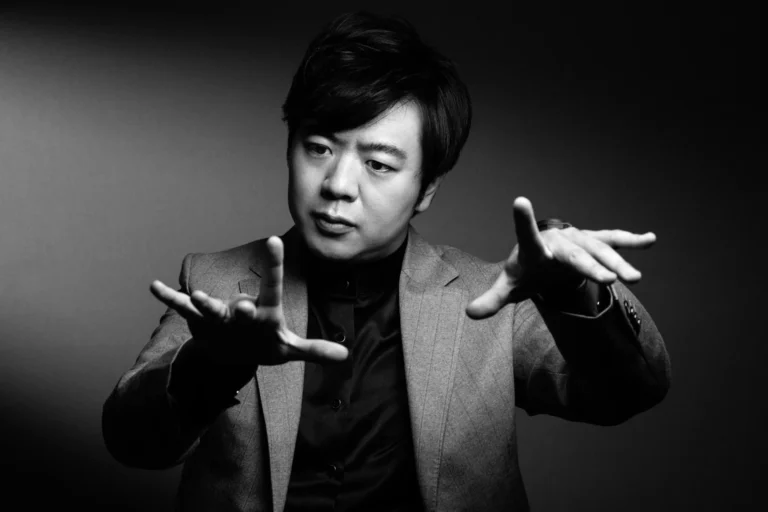

![photo of the Top 10 Richest English OnlyFans: Ranking [year] of Fortunes](https://media.lama-fortune.com/2025/04/bonnie-blue-lily-phillips-porn-star-e1745486045793-768x613.jpg)
